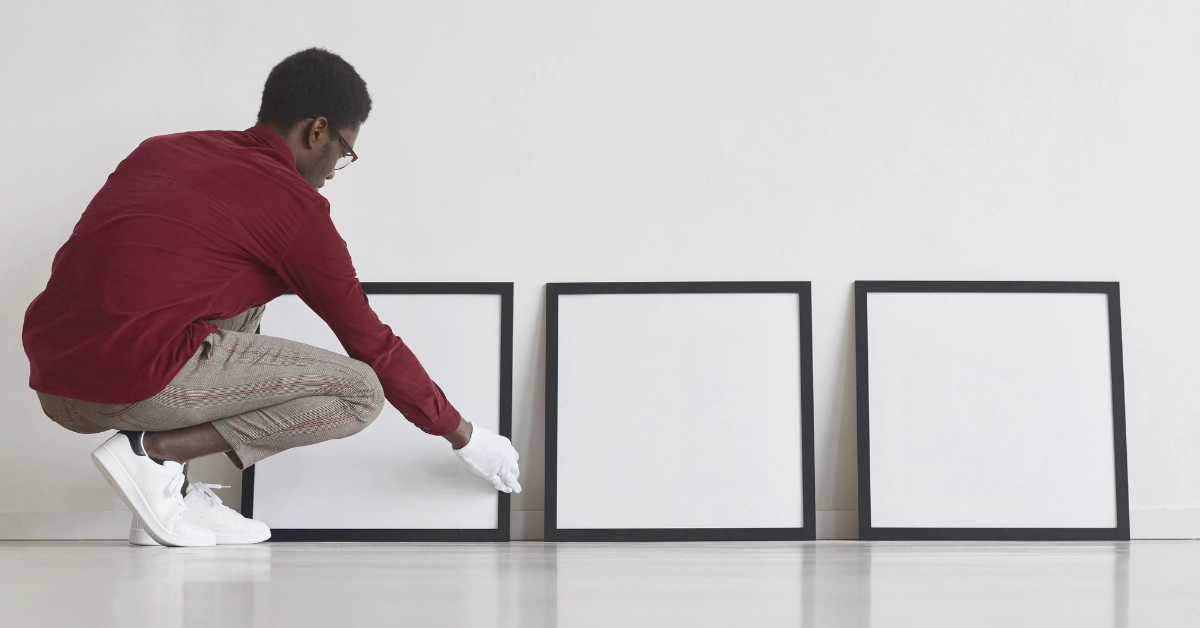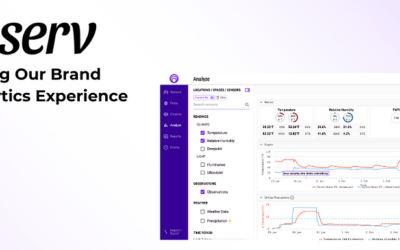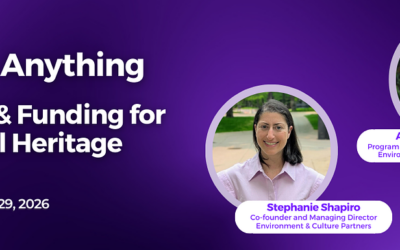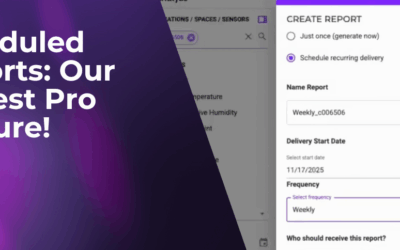Whether you are looking for new museum collection jobs or seeking to enter the market for the first time, it’s always nice to know what employers are looking for. Which skills should you make sure are highlighted in your resume, or which skills should you be looking to develop to make yourself a more attractive candidate? We looked through current job post descriptions for museum collection jobs to find out!
Administrative
Administrative skills are key for museum collection jobs because many of us will have to be responsible for planning, organizing, budgeting, and reporting on the activities and resources related to the collections. In some job descriptions, the post will include managing staff, volunteers, contractors, and external partners who work with the collections.
Depending on the specific job, you may find yourself developing and writing collection policies and procedures, grant and funding applications, statistical reports about collection usage, and even contractual agreements with donors, lenders, insurers, and other collecting institutions.
As a collections professional, you must be prepared to harness and learn new tools and software as no two institutions will be using the same systems. Administrative skills may be harder to acquire for emerging professionals who are yet to go into their first museum collection jobs and have only previously been interns or had entry-level positions. If, for whatever reason, you find that you need to beef up your CV with administration skills, a great place to obtain them for “free” is with your professional organization. Find a volunteer position that suits your taste or specific gaps and help out! You will learn a lot by volunteering with your peers and get to network too.
Registration
Registration skills are essential for museum collection professionals because they involve documenting, cataloging, tracking, and storing the collections. Registration skills also include handling legal and ethical issues related to the acquisition, accession, deaccession, loan, and disposal of collection items. Some examples of registration tasks include creating and updating collection records and databases, assigning accession numbers and barcodes to collection items, packing, unpacking, labeling, and moving collection items, conducting inventories and audits of the collections, and preparing loan agreements and condition reports.
If you don’t feel you have a lot of experience with registration-related tasks, find online courses such as the self-paced Museum Collections Documentation and Data Cleaning developed by the Canadian Heritage Information Network (CHIN) and Canadian Conservation Institute (CCI). You may also join the Association of Registrars and Collection Specialists (ARCS) which has very reasonable annual membership fees. It’s a great place to network with fellow registrars and get resources related to registration – make sure you check their past conference procedures as there is very interesting registration-related content there!
Conservation
Even if you are not going for a conservator job because you did not train in conservation, basic working knowledge of conservation issues is important to make sure you don’t accidentally end up with damaged collections. For all those non-conservator staff, preventive care practices and preventive conservation knowledge are extremely important as they relate to the environment surrounding collections. If you are completely new to the topic, check out this self-paced course by CHIN and CCI on Preservation Housekeeping for Heritage Sites and Small Museums.
At Conserv, we can help you most with knowledge on active environmental monitoring. One of the best and most efficient ways of protecting your collection is to actively monitor the environment. We say “actively” because there is not much point in having past data logger information on temperature, humidity or light if you cannot act upon any changes or spikes before the actual consequences become visible. For this reason, real-time monitoring is extremely important. Feel free to check out our free online course on Conserv Cloud (which you can use even with your own brand of loggers by uploading .csv files) and our recorded webinars on water emergencies and integrated pest management. You can also read through our other blog posts, many of which have valuable little nuggets of information on preventive practices for collections.
Communications
Communication skills are key wherever you work. You will have to communicate with different people both in written and oral form, as well as online and offline. Regardless of the specific duties and responsibilities of museum collection jobs, you will need to have good written communication skills – perhaps even some grant writing experience. In smaller institutions, you may end up in charge of your social media accounts, which can be successfully leveraged to showcase both your collections and staff. For this reason, any working knowledge of social media publication, blogging, formal report writing, exhibit labeling, design, storytelling, public relations, and even conflict resolution may be key to a successful experience.
If you feel you need to brush up on your communication skills, there are a myriad of free courses on LinkedIn, Coursera and even YouTube tutorials. If you are willing to pay (as little as $10-20), some of these courses will give you completion certificates. While they will have no academic value, they will display your eagerness to learn and acquire new skills. Just like with administrative skills, volunteering will also give you a great and safe place to practice your new digital, written, or people communication know-how.
Curatorial
Similar to conservation skills, you are less likely to be required to carry out curatorial duties with more general museum collections jobs. However, it certainly doesn’t hurt to be aware of curatorial responsibilities as you may very well have a curator colleague or have to help out every now and then. Two excellent documents you can read to get a better understanding of what curatorship implies are this Curatorial Kit – A practical guide for curators by The National Association for the Visual Arts (NAVA) from Australia and the Curator Core Competencies document prepared by the American Alliance of Museums Curators Committee.
Curators are expected to be good at collections planning, collections care, research, exhibition development, education and outreach, and advocacy. Many curatorial positions expect you to publish actively in both scholarly publications as well as exhibition catalogs, so written expression is absolutely essential.
We did not mention basic legal knowledge in registration skills, but they certainly apply both there and here. When working with collections, you may also be required to know the basics of fair use and copyright legislation for your region/country. This is added to any other legislation related to collections management that may be applicable. The last thing you need is for your museum to be sued because you printed an image of an object you own on your exhibition tickets, and it turns out that you don’t have image reproduction rights for that object… super oops!
Information Technology
In the 21st century, you cannot really expect to get away from skill expectations related to technology. Important skills may include anything related to digitization of collections, photography (Photoshop), database management, some degree of comfort with basic design software (Illustrator), environmental monitoring hardware and software use, comfort with updating institutional websites, messaging applications (like Slack), email clients, and virtual meeting software (Zoom, Microsoft Teams, etc.). You may also be more appealing to an employer if you are a comfortable user of both iOS and Microsoft software.
Although this is unlikely to show up in a museum collection job description, you should also be aware of basic cybersecurity so you don’t accidentally put your institution at risk by clicking phishing links in your email or sending sensitive information through unencrypted channels.
The good news is that, like with communications, many of these software skills can be acquired for free through online tutorials and courses.
Oh, just that?
Nope! Not just that! Other skills that are highly valued in museum collection jobs include soft skills such as leadership, working well under stress, and keeping deadlines. Commitment to ethical and social values as well as sustainability awareness may also be required. Alternative “desired” but not required characteristics may include driving licenses and personal car availability, ability to work at heights (some of those collection items are big!), good hand-eye coordination, health and safety qualifications, availability to travel, or other more job-specific certifications.
A couple of examples
We found this posting for a position with the Arts and Culture Department for a city government in the US:
“The Museum Collections Specialist is responsible for handling, preparing, installing, transporting, and storing specimens according to accepted museum principles; recording information concerning specimens and inventory; maintaining files; photographing and digitizing the collections; monitoring expenses, maintaining collection storage areas; performing minor conservation of specimens…”
Based on the description of responsibilities and essential functions, some of the key skills for this position include:
- Registration skills (inventory, database management, photography, digitization)
- Administrative skills (budgeting, reporting, organization, management)
- Communication skills (internal and external, including press communications)
- Conservation skills (minor interventions and preventive care knowledge)
This posting is for a Collections Manager in a university collection:
“Directly manages and oversees a collection of artifacts, specimens, and/or artwork for a specified university museum or gallery, including acquisition, documentation, housing, use, preservation, disposition, and maintenance. Receives, prepares, and catalogs new materials; plans and organizes exhibition-related movement of objects, including packing, shipping, and insurance for collections exhibitions as well as for incoming and outgoing loans. Manages the database of collection contents. Manages copyright permissions. Supervises museum personnel, volunteers, and students.”
While slightly different from the first example we have for a position with a city, the key skills for this kind of museum collection jobs in a university setting may include:
- Registration skills (acquisition, documentation, cataloging, packing, shipping, insurance, loan work, database management)
- Administrative skills (people management, access, grant and project proposals)
- Conservation skills (environmental monitoring, packing, housing, object movement)
- Communication skills (Presentations, reporting, meetings, etc.)
- Curatorial skills (Collections research)
- Information technology skills (Software upgrades, database migration, system security!)
Conclusions
If one thing can be said of museum collections jobs, it is that they require a lot of knowledge and experience! As a collections professional, it can be daunting to search for jobs when we look at descriptions that ask for all kinds of skills ranging from preventive conservation to insurance paperwork to photography and social media management.
Nonetheless, collections professionals are nothing if not resourceful and determined! We hope that the information presented above will help you identify any knowledge gaps so you can start filling them in. Luckily, many can be learned for free online or through the resources provided by various professional organizations and can then be practiced in volunteering positions – which helps you give back to your community too!
If you have any questions about environmental monitoring, integrated pest management, or just want to talk about preventative conservation, please reach out to us! Don’t forget to check out our blog or join our community of collections care professionals where you can discuss hot topics, connect with your peers or even take a course to get familiar with the Conserv platform.





